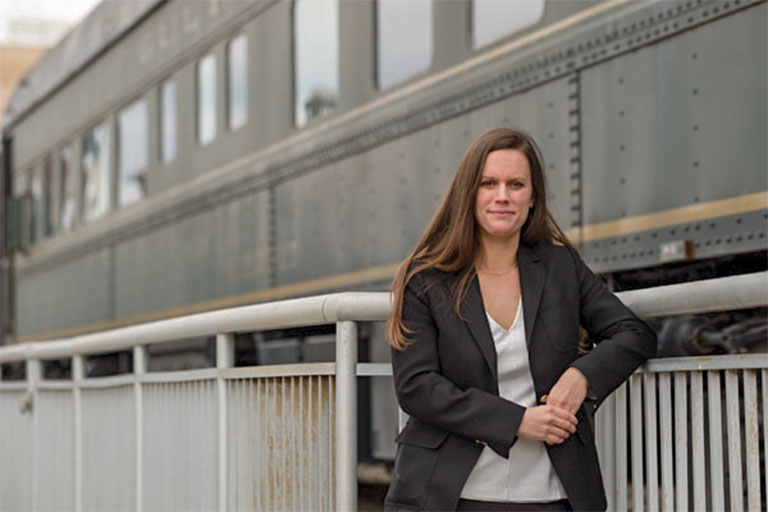
A disproportionate population of low-income people are dependent on public transportation and lack the means to change their form of transportation. This is the subject of new research by Assistant Professor Candace Brakewood, whose primary areas of research include public transit fare policy and technology and who also serves as the chair of the Transportation Research Board’s Standing Committee on Marketing and Fare Policy (AP030).
This research, which was led by recent graduate Wes Darling and published in the Transportation Research Record: Journal of the Transportation Research Board, aims to synthesize the current state of reduced-fare programs for low-income transit riders.
Two UT students, recent master’s graduate Emily Carpenter and current master’s student Tami Johnson-Praino, also contributed. This research was done in collaboration with Assistant Professor of Urban Planning Carole Voulgaris at Harvard University’s Graduate School of Design.
Low-income transit riders experience a disproportionately greater burden when paying for transit and often have to make difficult financial trade-offs, such as foregoing food, housing or personal care to pay for transit.
This research examined reduced-fare programs at the 50 largest transit agencies in the US and compared agencies with programs for low-income riders based on three dimensions: eligibility and enrollment, fare media and discount pricing, and estimated transit expenditure by eligible riders.
Using a method developed to evaluate the ‘‘fare burden’’ of transit riders with different income levels, the research team determined that low-income reduced-fare program participants at the income eligibility threshold typically spend an estimated 2-6 percent of their annual income on transit, although very-low-income people may need to spend much higher shares of their incomes on transit fares.
The study indicates that transit agencies may need to reevaluate the structure of their existing low-income reduced-fare programs and implement tiers of discounts to ensure that fares are equitable for all riders.